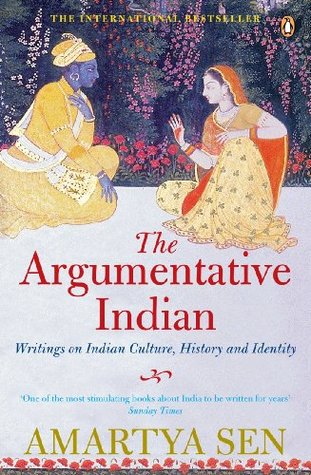More on this book
Community
Kindle Notes & Highlights
The case for doing what one sees as one’s duty must be strong, but how can we be indifferent to the consequences that may follow from our doing what we take to be our just duty?
A defeated argument that refuses to be obliterated can remain very alive.
‘We all seem to be affected by desire, anger, fear, sorrow, worry, hunger, and labour; how do we have caste differences then?’
But that reflects a basic misunderstanding of how science proceeds and why the borders of scientific knowledge are not drawn along geographical lines.
Silence is a powerful enemy of social justice.
It is also interesting to note that the greatest grammarian in Sanskrit (indeed possibly in any language), namely Pāṇini, who systematized and transformed Sanskrit grammar and phonetics around the fourth century BCE, was of Afghan origin (he describes his village on the banks of the river Kabul).
It is not often realized that even the word ‘Mandarin’, standing as it does for a central concept in Chinese culture, is derived from a Sanskrit word, Mantrī, which went from India to China via Malaya.
Important as history is, reasoning has to go beyond the past.
Though Buddhism is a religion like any other, it began with at least two specific characteristics that were quite unusual, to wit, its foundational agnosticism and its commitment to public communication and discussion.
It is, however, important to avoid the much-aired simplification that argues that all India needs to do to achieve fast economic growth and speedy reduction of poverty is greater reliance on the global market and on international trade.
It is hard to escape the general conclusion that economic performance, social opportunity and political voice are deeply interrelated.
It is the interactive presence of these two features of deprivation – being low class and being female – that can massively impoverish women from the less privileged classes.
Effective elementary education has in practice ceased to be free in substantial parts of the country, which of course is a violation of a basic right.
When a Bengali Hindu does religious ceremonies according to the local calendar, he or she may not be quite aware that the dates that are invoked in the calendrical accompaniment of the Hindu practices are attuned to commemorating Muhammad’s journey from Mecca to Medina, albeit in a mixed lunar-solar representation.
while we cannot live without history, we need not live within it either.†


